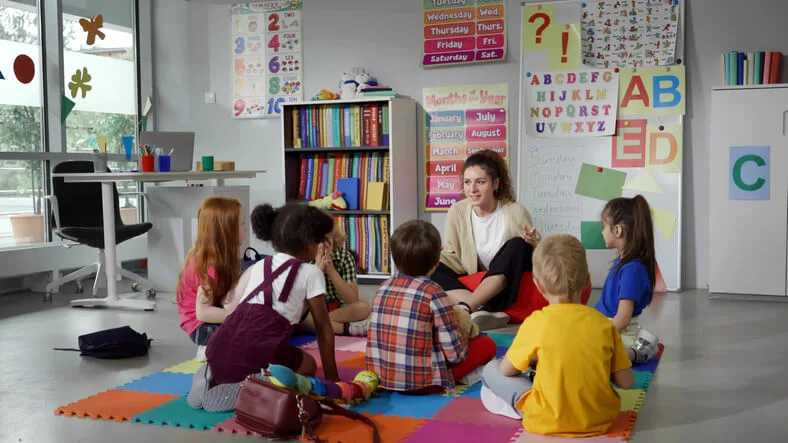Mind Boggling World of Psycho-Educational Testing
What Parents Need to Know
John’s parents came to see me with 10 pages of psycho-educational testing reports completed by their school district. John had an Individualized Educational Plan (IEP), a diagnosis of speech/language impairment and some visual-perceptual problems requiring the services of an occupational therapist. Within a few minutes of scanning, I quickly understood the issues.
Having spent a quarter of my professional life concentrating in educational testing and a doctorate in speech pathology, it was no big deal. However, parents are often bewildered about the results of their son or daughter’s educational reports. What does it all mean? And once they know, what do they do about it? What should a teacher, parent, tutor, or Committee on Special Education (CSE) do about it? Welcome to the ever so confusing world of psycho-educational testing.
Some Considerations
As a parent, there are several steps you can take to make sure you get the best possible information about your child from the testing process, understand some of the technicalities of test findings and emerge with insight that can help you move forward in your child’s educational process.
- Be aware of the conditions under which your child was tested, and who did the testing.
- Is there a statement of how reliable or unreliable the tester judges the results to be?
- Was this a professional who recently met your child, or does your child have an established relationship with the tester?
- Does this information appear in your child’s report?
- Importantly, a “test” is simply a sample of your child’s behavior. For example, if your child took a test on a day where he had a headache or bellyache, or had just learned that you were selling the family home, you may want to view the results in that context. If there is any way for the child to be re-tested when conditions are less stressful, you may want to advocate on your child’s behalf.
Narrative First
There are many tests consistently administered by school districts in Westchester County and the surrounding areas to determine whether a student is eligible to receive a “504 plan” (commonly those services provided by speech, occupational and physical therapists) or an IEP.
Look for a clear explanation of these scores in the narrative of the report. Does the explanation of the scores fit with what you know about your child and his report card? Is this report very different from what has been previously reported about your child? If there is no narrative, be sure to ask for an interpretation of the report at a school meeting.
Scan the Scores
It can be very confusing to figure out how your child is doing as you look at the test results. When you look at a test table you may see several columns with different types of scores reported. Commonly, test scores are reported as standard or scaled scores. Because standardized tests have different numbers of items, and are administered to students of varying age levels, test developers devised standard (also referred to as scaled) scores. For example, on one reading test, a child received a standard/scaled score of 10; on a second reading test, he received a standard/scaled score of 50 and on a third reading test, he received a standard/scaled score of 100. These scores may all indicate average performance in reading. However, without an understanding of what a mean and standard deviation are, you may be befuddled examining the tables of these test scores. Do not worry there is other information that can be helpful.
Easier With Percentiles
One very helpful way to interpret your child’s test scores is to look at the column labeled percentile scores. Most psycho-educational reports include this type of score. For example, your child scored in the 50th percentile on reading test A, in the 40th percentile on reading test B and in the 45th percentile on reading test C. The 50th percentile indicates that he is doing as well or better than 50 percent of the students who took the test when it was developed – the standardization sample.
In other words, your child is more or less “average” in his reading ability. This is a lot easier to understand than the 10, 50 and 100 scores. Unfortunately, you may think that your child is not average. In fact, he’s in the second lowest reading group in the class. While this is not the average situation, it is possible. Remember, your child is being compared to children across the country, across socio-economic groups, across ethnic groups, across rural and city children. This score tells you nothing about how the other children in the class are doing. If this is the case, you may want your school district to examine and rate your child’s work samples in reference to his or her class peer group.
Grade Equivalent Scores
Please be aware of “grade equivalent” scores. On the surface, this appears easy to understand. Your child scored a grade equivalent of 3.9 on his reading comprehension test and he is in the middle of the 4th grade. OK, you think he is roughly six months behind. Maybe not. The way “grade equivalent” scores are designed, a gifted 5th grader can receive a grade equivalent score of 9.1. This does not necessarily mean he can read 9th grade material. You may want to ask your school district to defend the use of grade equivalent scores. Grade equivalent scores are open to significant misinterpretation.
Smarts and IQ
Many parents of students with special needs, and parents of typically developing children, question just how smart, or not, is their child. School psychologists frequently administer the “WISC” (Wechsler Intelligence Scale for Children). This test, now in its fourth version, evaluates verbal skills (including vocabulary, word reasoning), perceptual reasoning (block manipulation and other tasks), working memory (including solving arithmetic with a speed limit, recalling digits), and processing speed (speed at solving a variety of problems).
Common belief is that intelligence test scores are not stable until the middle school years. Because so much brain development occurs in childhood and adolescence, the types of questions asked of a preschooler is completely different from those posed to a young teen. As such, you can be a very gifted preschooler and a middle of the road teenager with respect to intelligence.
Be aware that the developers of intelligence tests do not have any information as to whether the scores are predictive of any future performance. These studies are just too expensive. The concept of intelligence is still very much debated, and just how to measure it is also subject to controversy.
What to Analyze
There are two important ways to analyze your child’s test reports. First, look for converging lines of evidence. That is, do the test results in one content area (such as mathematics or reading) repeatedly reveal the same results over time or across testing professionals?
Second, do the tests confirm both what you see at home and what your child’s teacher reports? Chances are, as in all human behavior, there will still be some ambiguity; however, by doing this type of analysis you will be closer to a clear sense of your child’s psychological and educational needs. You will also become a more convincing advocate as you work with your school district to make sure your child’s needs are met.
Diane Slonim, SLP, Ph.D., a Westchester resident, is an adjunct professor at Manhattanville College, a clinical instructor at New York Medical College and a consultant and private practitioner.
What Is a Psycho-Educational Evaluation?
A psycho-educational evaluation is a set of procedures (interviews, observations, rating scales) and standardized tests designed to assess academic skills, intelligence and psychological issues. These evaluations are conducted by school psychologists, licensed clinical psychologists and neuropsychologists. The evaluation procedures and tests are specifically designed to address presenting problems, such as speech/language impairments, emotional disturbances and dyslexia. The American Psychological Association website has important information regarding testing standards.















